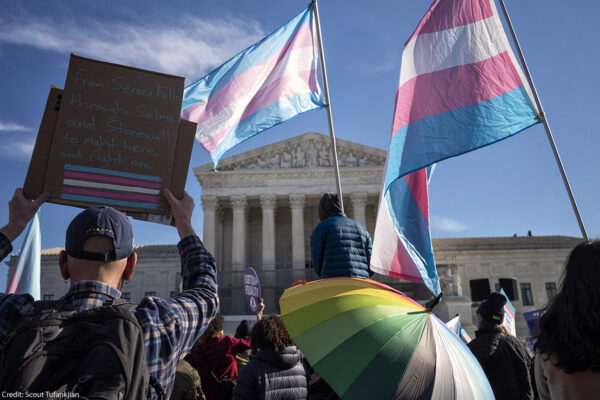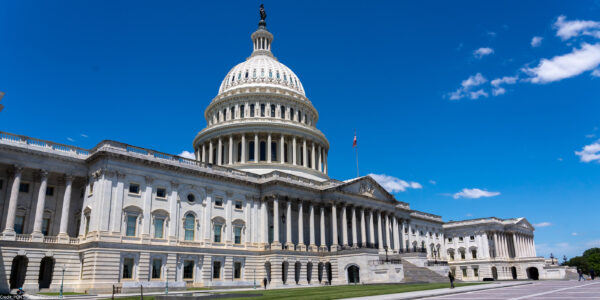Transgender Kansans Challenge State Law Invalidating Their Driver’s Licenses and Allowing Them to Be Sued for Using Public Restrooms
Topeka, KS – Two transgender residents of Kansas have filed a lawsuit in state court challenging a new state law that immediately invalidated their driver’s licenses, and which authorizes anyone to sue anybody they suspect of being transgender for using the “wrong” restroom in government buildings.
SB 244, passed into law by the state legislature over Governor Laura Kelly’s veto, prohibits transgender people from using public restrooms on government property that align with their gender identity. It also establishes a private right of action that allows anyone who suspects someone is transgender and in violation of the law to sue that person for “damages” totaling $1,000.
The law also invalidates state-issued driver’s licenses with updated gender markers that reflect the carrier’s gender identity. This week, transgender people across the state received letters from the state Department of Revenue’s Division of Vehicles informing them that their driver’s licenses “will no longer be valid,” effective immediately. The law also prohibits transgender Kansans – or those born in Kansas - from updating the gender marker on state-issued birth certificates and driver’s licenses in the future.
Today’s lawsuit challenging SB 244 was filed in the District Court of Douglas County on behalf of anonymous Plaintiffs Daniel Doe and Matthew Moe by the şěĐÓĘÓƵ, the şěĐÓĘÓƵ of Kansas, and Ballard Spahr LLP. The lawsuit charges that SB 244 violates the Kansas Constitution’s protections for personal autonomy, privacy, equality under the law, due process, and freedom of speech.
“This legislation is a direct attack on the dignity and humanity of transgender Kansans,” said Monica Bennett, Legal Director of the şěĐÓĘÓƵ of Kansas. “It undermines our state’s strong constitutional protections against government overreach and persecution.”
“SB 244 is a cruel and craven threat to public safety all in the name of fostering fear, division, and paranoia,” said Harper Seldin, Senior Staff Attorney for the şěĐÓĘÓƵ’s LGBTQ & HIV Rights Project. “The invalidation of state-issued IDs threatens to out transgender people against their will every time they apply for a job, rent an apartment, or interact with police. Taken as a whole, SB 244 is a transparent attempt to deny transgender people autonomy over their own identities and push them out of public life altogether.”
“SB 244 presents a state-sanctioned attack on transgender people aimed at silencing, dehumanizing, and alienating Kansans whose gender identity does not conform to the state legislature’s preferences,” said Heather St.Clair, a Ballard Spahr litigator working on the case. “Ballard Spahr is committed to standing with the şěĐÓĘÓƵ and the plaintiffs in fighting on behalf of transgender Kansans for a remedy against the injustices presented by SB 244, and is dedicated to protecting the constitutional rights jeopardized by this new law.”



